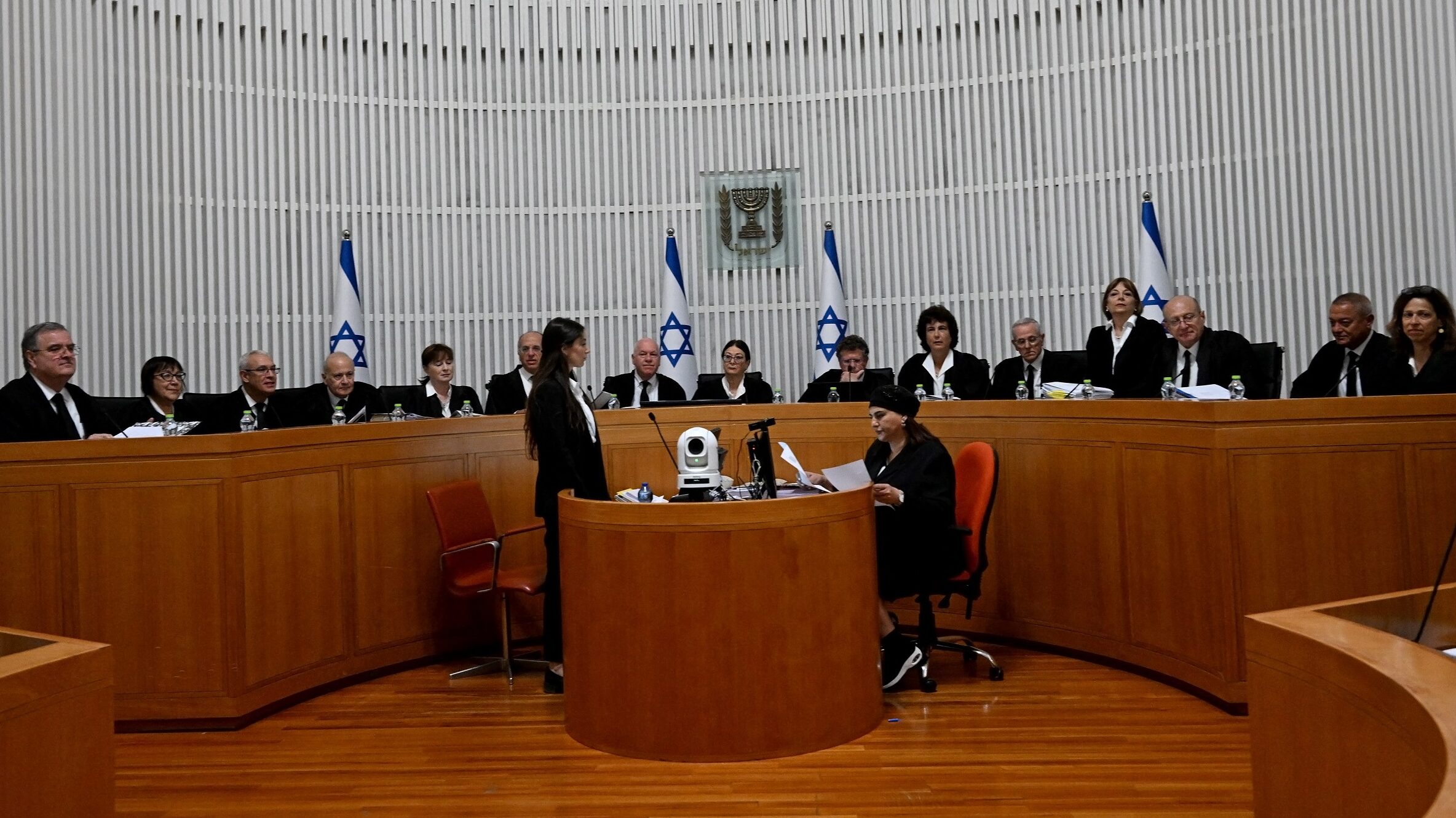Israeli High Court To Decide Fate of Netanyahu’s Cancellation of the ‘Reasonableness Standard’
Chief Justice Esther Hayut says only a “mortal blow to democracy” would justify the court striking down a basic law
In a rare televised hearing before an unprecedented 15-judge panel, the Israeli High Court of Justice is set to rule on the legality of the Netanyahu government’s cancellation of the “reasonableness standard,” passed in late July.
The court’s long-awaited final decision is not expected to be announced today.
The new law—an amendment to Basic Law: The Judiciary that prohibits the court from overturning government actions deemed “unreasonable”—is the first in a series of bills known collectively as the “judicial overhaul.”
Critics like Dr. Eliad Shraga, an attorney from the Movement for Quality Government in Israel (MQGI), argue that these bills threaten to undermine the nation’s democracy by neutering the courts.
It’s one of the longest hearings I’ve ever been in
“It’s one of the longest hearings I’ve ever been in,” says Gil Gan-Mor, director of the Civil Rights Unit at the Association for Civil Rights in Israel, speaking to The Media Line during a session break. Gan-Mor adds that 38 human rights organizations have gathered, seeking to have the court hear their claim that “this law will lead to a serious violation of human rights.”
The magic words everyone is saying are ‘constitutional crisis.’ But I think we’re already in a constitutional crisis when the High Court is debating whether to cancel part of Israel’s basic laws.
Tomer Naor, another attorney from MQGI, tells The Media Line, “The magic words everyone is saying are ‘constitutional crisis.’ But I think we’re already in a constitutional crisis when the High Court is debating whether to cancel part of Israel’s basic laws”—the state’s de facto constitution.
Despite months of ongoing protests and heated rhetoric, Chief Justice Esther Hayut argues that a clear “mortal blow” to democracy is required to justify overturning a basic law.
Nevertheless, Shraga believes that, based on the judges’ reactions, the majority “will repeal this undemocratic statute.” Both he and Naor also plan to advocate for a formal constitution and bill of rights as their next step.
“We deserve it after 75 years,” says Shraga, “and that’s what I’m fighting for.”
The judges commenced the marathon of arguments early in the morning, beginning with proponents of the law and concluding with opponents by evening, when The Media Line arrived at the courthouse.

